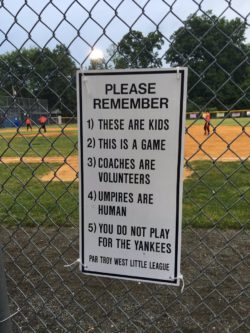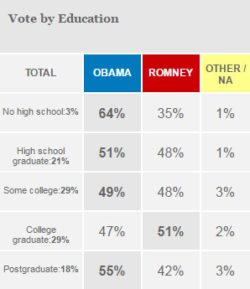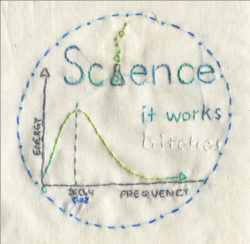Monthly Archives: June 2016
{Ed note: The numbers are off in the tweets. She repeated nine and then skipped twelve.}
Ok wait seriously here's a list of some of what's alleged to have happe11ned with the Oakland police department: 1) a cop kills his wife
— Saque de Banda (@aurabogado) June 18, 2016
2) fellow officers help him cover up the crime, and the dead cop's wife death is ruled a suicide
— Saque de Banda (@aurabogado) June 18, 2016
3) that same cop, who people now believe killed his wife, commits actual suicide
— Saque de Banda (@aurabogado) June 18, 2016
4) the cop leaves behind a suicide note that reveals that him, and some of his fellow officers, had been raping a child trafficking victim
— Saque de Banda (@aurabogado) June 18, 2016
5) apparently, an investigation begins to reveal that several officers have, in fact, commuted child rape
— Saque de Banda (@aurabogado) June 18, 2016
6) after the child trafficking victim turns 18, more cops start paying her for sex; some of this happened in the Oakland PD parking lot
— Saque de Banda (@aurabogado) June 18, 2016
7) as the investigation continues, it's alleged that the Oakland PD chief's wife knew about the child trafficking victim rape all along
— Saque de Banda (@aurabogado) June 18, 2016
8) for this, and possibly additional reasons, Oakland PD chief steps down: whether he knew what his wife knew or not, he's unfit to lead
— Saque de Banda (@aurabogado) June 18, 2016
9) the Oakland PD chief's wife publicly tweets that "it's bullshit" right after her husband is fired
— Saque de Banda (@aurabogado) June 18, 2016
9) Oakland's mayor says the chief stepped down for "personal reasons." Girl I GUESS if you call knowledge of child rape a personal thing
— Saque de Banda (@aurabogado) June 18, 2016
10) muck racking reporters break the lid off the story and Oakland's mayor doubles down, basically saying they're lying
— Saque de Banda (@aurabogado) June 18, 2016
11) new chief is sworn in but may or may not be connected to child rape case. For whatever reason, he also steps down after a few days
— Saque de Banda (@aurabogado) June 18, 2016
13) a new NEW Oakland PD chief is sworn in and the mayor says he's great and stuff but apparently not because he steps down after two days
— Saque de Banda (@aurabogado) June 18, 2016
14) meanwhile a new scandal, this time surrounding blatantly racist, kkk and n-word having texts from Oakland PD, has emerged
— Saque de Banda (@aurabogado) June 18, 2016
15) Oakland's mayor is somehow still at her job, decides that there just won't BE a police chief because that's how rotten the department is
— Saque de Banda (@aurabogado) June 18, 2016
16) one murder, a cover-up, a suicide, child rape, racist texts, 3 police chiefs in one week; mayor asks the public to trust the process
— Saque de Banda (@aurabogado) June 18, 2016
Photo by THE Holy Hand Grenade! 
 Like it or not, Maajid Nawaz really was a Muslim, and liberals can’t let Trump have the issue.
Like it or not, Maajid Nawaz really was a Muslim, and liberals can’t let Trump have the issue.
The race to determine the motive of the Orlando shooter hasn’t been a fun ride. Everybody thinks everybody else looks silly because the newest revelation makes it so obvious.
Breaking: If you have a clean record you can easily buy a gun. Relatedly, this might be misleading. I know at least two people who have firearm dealership licenses simply so they can buy, sell, and trade for their collection, rather than being meaningful dealers in the way that people imagine.
Avi Woolf’s piece on political correctness is a little too blaming-the-outsiders-for-Trump, but otherwise a solid perspective.
The calm, sensible period is going away. Replaced by a lot of needless overpunctuation. Somewhere in here is a metaphor for the Republican Party.
Gawker may get out of the Hogan payout with some creative bankruptcy.
 Cool: A london startup is helping Mongolian nomads get their mail.
Cool: A london startup is helping Mongolian nomads get their mail.
Poland is apparently cracking down on the whole Internet Freedom thing.
Trevor Aaronson argues that the FBI’s “pursue every lead” policy actually helped the Orlando shooter slip away.
Education does police officers good. Or perhaps more accurately, having educated officers does police departments good.
Limiting flavors and taxing ecigarettes is a good way to reduce ecigarette use. Among current smokers, at least.
I always thought the GoBots origin was way more interesting than Transformers. Cracked has a list of dark toy origin stories.
 We’ve moved around a lot and will probably move at least one more time. Which I hate because I’m tired of moving. Going forward, I worry more about this.
We’ve moved around a lot and will probably move at least one more time. Which I hate because I’m tired of moving. Going forward, I worry more about this.
The physical (as opposed to voice) actor for ALF died. I didn’t know they even had an actor. I thought the few times they couldn’t use a puppet, they just had a rent-a-child-actor in there. (Does anyone else remember the trauma-inducing conclusion to that show’s run? Holy hell.)
Race relations in the US are, compared to the rest of the world, pretty good and getting better.
If there’s one thing we can take for granted, it’s that authoritarians veer Republican. Everybody knows this. Science says so. You don’t have science, do you? If you do, you’re probably a Republican.
So when a study in the American Journal of Political Science found more data points to confirm what we already know, it got a lot of coverage. As researcher Steven Ludeke says:
The erroneous results represented some of the larger correlations between personality and politics ever reported; they were reported and interpreted, repeatedly, in the wrong direction; and then cited at rates that are (for this field) extremely high. And the relationship between personality and politics is, as we note in the paper, quite a “hot” topic, with a large number of new papers appearing every year.
The problem, as you may have heard, is that it’s exactly backwards. It is not conservatives that have the propensity for psychoticism, like authoritarianism, but liberals. It is not liberals that that are so wonderfully into social desirability, but conservatives. They read the data the wrong way. How could this have happened? Fortunately, they explain it for us:
In line with our expectations, P [for “Psychoticism”] (positively related to tough-mindedness and authoritarianism) is associated with social conservatism and conservative military attitudes. Intriguingly, the strength of the relationship between P and political ideology differs across sexes. P‘s link with social conservatism is stronger for females while its link with military attitudes is stronger for males. We also find individuals higher in Neuroticism are more likely to be economically liberal. Furthermore, Neuroticism is completely unrelated to social ideology, which has been the focus of many in the field. Finally, those higher in Social Desirability are also more likely to express socially liberal attitudes.
One almost wonders what might have happened if they’d read the results correctly. Results that did not conform to their expectations? Let us look, for a moment, Richard Feynmann talking about the hard sciences:
We have learned a lot from experience about how to handle some of the ways we fool ourselves. One example: Millikan measured the charge on an electron by an experiment with falling oil drops and got an answer which we now know not to be quite right. It’s a little bit off, because he had the incorrect value for the viscosity of air. It’s interesting to look at the history of measurements of the charge of the electron, after Millikan. If you plot them as a function of time, you find that one is a little bigger than Millikan’s, and the next one’s a little bit bigger than that, and the next one’s a little bit bigger than that, until finally they settle down to a number which is higher.
Why didn’t they discover that the new number was higher right away? It’s a thing that scientists are ashamed of—this history—because it’s apparent that people did things like this: When they got a number that was too high above Millikan’s, they thought something must be wrong—and they would look for and find a reason why something might be wrong. When they got a number closer to Millikan’s value they didn’t look so hard. And so they eliminated the numbers that were too far off, and did other things like that. We’ve learned those tricks nowadays, and now we don’t have that kind of a disease.
A good thing, that! Then there’s no problem, right? Let us consider, for a moment, the dangers of cell phones on the roads. Some scientists look at it recently and found themselves quite surprised to find that cell phone bans resulted in no reduction in accidents:
Interesting. So they got a result that didn’t seem right to them, so they kept investigating. They tried to control for every single factor in search for a particular answer, and they didn’t find it. This is science working. Except, of course, if you consider if some factor gave them the result they were expecting. If some fluke or uncontrolled-for-factor had given them the reduction they were looking for, that cell phone bans result in fewer accidents wouldn’t be wrong or unproven, it would be scientific fact.“We were expecting to find maybe a five to ten percent reduction in accidents. We had read the studies that talking on your phone is as dangerous as drinking and driving. But even after controlling for gas prices, miles traveled, rainfall, and holidays—all factors that impact traffic patterns, road volume, and crashes—they found no impact on the rate of accidents.
“Only after spending a ton of time looking at the data, slicing it in different ways, we eventually came to the conclusion that there was no evidence of a decline in accidents. It took a while for us to convince ourselves that there wasn’t something there.”
Now, imagine that we’re not talking about the unforgiving hard sciences. Imagine we’re not talking about something as technocratic as cell phone bans, but matters of social political theory. The difference in most of our minds between right and wrong. While we’re at it, imagine that you’re investigating the foot soldiers of right and the foot soldiers of wrong. I don’t know what you imagine, but I imagine that if you are getting results that are “in like with your expectations”, your normative expectations, how likely are you to double-check the findings? How likely are you to wonder if perhaps you are using the wrong test to determine what is and is not authoritarian? In this case, maybe they wouldn’t have because they say that which attributes to which side of the gradient wasn’t the point of the study. Maybe they would have looked at the results and said, “Huh. Maybe we’re the authoritarians.”
I mean, it’s not actually impossible. Science! Heck, it’s possible that the researchers themselves were conservative and were not the least bit surprised to find out about their own authoritarian streak. Maybe they wore it as a badge of honor. Maybe, maybe, maybe. Or maybe they are, in fact, human. Maybe they came into it with their own suspicions about how people divide themselves into liberal and conservative and maybe, just maybe, that influenced their thinking. And maybe sometimes “reality has a liberal bias” because those whose job it is to (scientifically!) determine reality, approach it from the point of view of human beings with their own expectations and impressions.
You can move beyond the scientists themselves and to another step. If you’re an academic journal, are you more likely to scrutinize the methodology of something that brings an unexpected, or unpleasant result? Or are you going to approach both of them with absolute neutrality because science? Well?
 This sounds right to me. They may be tacky, and the food may not be good for you, but other than that it’s as good a social hub as anything that isn’t free, and it’s cheaper than coffeehouses.
This sounds right to me. They may be tacky, and the food may not be good for you, but other than that it’s as good a social hub as anything that isn’t free, and it’s cheaper than coffeehouses.
I’m not a big James Patterson fan, but it’s hard not to admire his thirst for innovation.
Good news! Payday lenders will not be so easily thwarted by those laws.
I largely find myself in agreement with this. Which is why, while I’m not alarmed by Thiel’s involvement, I was alarmed by the outsized verdict that is causing Gawker’s bankrupcy.
Conor Sen reports that the US manufacturing renaissance, such as it was, is probably over.
If vapers can’t vape, at least half are worried about going back to smoking. The good news is that as long as they can vape…
I would bet you money that Kim Jong Un believes himself to be immune to lung cancer. I mean, what, would you tell him?!
For parties ostensibly on opposite sides, the parallels between the Republicans and Labour can be spooky sometimes.
Faster, please.
Laser Tag Island! Pretty cool concept.
Here’s a pretty cool calculator on whether it’s advantageous to rent or buy.
We must go to the moon Titan, so that we can extract its oil.
Here is definitely a place that solar power could come in especially handy: Remote cellular towers.
Ted Bromund looks at the history of the US-UK relationship.
How will international law influence a civil society in space? This space lawyer is so glad you asked.
The Weekly Standard’s Jay Cost is a pretty angry man. A fierce critic of Donald Trump, the primaries did not turn out the way that he had hoped. More to the point, though, he saw it coming. Not Donald Trump specifically, but a broken primary process that was in need of serious reform. Along with Jeffrey H Anderson, he penned an elaborate revamp of the process that would have, if instituted, balanced democratic instincts with establishment prudence. The party paid no heed, and here we are.
Truth be told, I don’t favor Cost’s plan. It would be far too complicated and difficult to understand. If it worked perfectly, it could easily be an improvement over the current system, but it is (as James Hanley described it) a planner’s plan, and bound to frustrate the very people it needs to be sold to. From the party’s standpoint, it would be too expensive. From the voter’s standpoint, they would want to know why they can’t just vote like they used to.
Other people have put forth other radical plans to change the system. James Nevius is the latest in a long line of people agitating for a national primary with a runoff. This certainly looks more attractive to me personally than it did a year ago, but most of my objections remain. A primary calendar allows candidates to build support over time. A national primary would put almost all of the emphasis on media and money, and very little on organization and voter interaction.
Others, like James Hanley, believe that primaries should be done away with altogether because they encourage populism, party office holders shouldn’t be saddled with nominees they don’t support, and committed activists have a better notion of the party interest than casual voters.
A lot of things brings us to the questions, what are primaries for? A lot of people believe that they are mechanisms by which the voters decide who the November candidates should be, but that’s not actually true. Primaries are a mechanism by which a party decides who the best candidate for November is. In the United States, this decision is typically turned over to the voters but it need not be. In fact, in most of the rest of the world, it isn’t. It’s likely to a party’s advantage to have at least a quasi-democratic process in order to make the broader population, and their voters and potential voters more specifically, feel like they are a part of it. (more…)
 Verizon’s former pitchman, Paul “Can you Hear Me Now” Marcarelli, has gone with Sprint. Verizon’s response was to concede that Sprint’s network probably is as good as Verizon’s was in 2002. Anyway, I miss the X-Files guy more.
Verizon’s former pitchman, Paul “Can you Hear Me Now” Marcarelli, has gone with Sprint. Verizon’s response was to concede that Sprint’s network probably is as good as Verizon’s was in 2002. Anyway, I miss the X-Files guy more.
It turns out, when the chips are down, doctors die like the rest of us do.
Good news! The rent isn’t quite so damn high anymore. Actually it is, but it’s getting higher at a lower rate, and that’s something.
What? NO!
US versus Canada, the final smackdown.
Buzzfeed may no longer be accepting ads from the GOP, but Washington Free Beacon wants you to know it will not discriminate.
James Pethokoukis takes issue with the recent release about the US being the 41st most entrepreneurial nation in the world.Priceonomics looks at female rulers before feminism, where queens may (or may not) have been more warhawky than their king counterparts.
The thermodynamics formula for calories consumed and burned doesn’t work. Why not?
Tim Harford writes of the real costs of opportunity costs and the power of no.
Space and gravity how do they work?
Of course treadmills got their start as a torture device. Of course they did.
Once we get rid of the Confederate emblem on Mississippi’s flag, and the Union Jack on Hawaii’s, I want to go after state seals next. Relatedly, here are some great and terrible flags of cities in Texas.
Is the problem with psychodelics just dosage?
Vox has a story that is primarily about the voting habits of the wealthy, but talks briefly of education:
There are a few things we know have become very strong predictors of voting Democratic. One is that nonwhite people tend to support Democrats at higher rates than white people do. Another is that the highly educated have become much more liberalover time, making educational attainment a better predictor of voting for a Democrat.
And over time, the top 4 percent has become much more diverse and much more highly educated.
In the context of an article about the wealthy veering towards the Democratic Party, one could easily read this paragraph and conclude that one of the reasons they are increasingly Democratic is that they are more educated, and educated people tend to vote Democrat. You could come to that conclusion because that’s almost exactly what the article says. Almost. It actually makes two comments pertaining to education. First, that the highly educated are becoming liberal. Second, that educational attainment is a predictor for voting Democrat.
Both of these are more-or-less true. Higher education tends to associate with social liberalism, for example. And educational attainment is a predictor for both Democrats and Republicans. Just not in the way that the article implies. Nor in the way that either link lays it out, either. Because the obvious implication of those two statements, that more education generally leads to Democratic voting habits, isn’t especially true unless you look at the data in very specific ways, or look only at one subset of the population.
 The 2012 data is to the right, and previous years shown below it. You will notice that the one and only group that Mitt Romney wins is college graduates with no post-graduate degrees. This is actually really quite common result. With the exception of 2004, college graduates were the top educational group of Republicans going back all the way to 1988. In 2004, George W Bush did best among “some college” at 54% and then tied among “high school diploma” and “college graduate.” at 52%. For the most part, however, the data to the right is indicative. What it shows is that Democrats do best among the minimally educated and the maximally educated, and Republicans do best in the Great Middle, some college or a bachelor’s degree*.
The 2012 data is to the right, and previous years shown below it. You will notice that the one and only group that Mitt Romney wins is college graduates with no post-graduate degrees. This is actually really quite common result. With the exception of 2004, college graduates were the top educational group of Republicans going back all the way to 1988. In 2004, George W Bush did best among “some college” at 54% and then tied among “high school diploma” and “college graduate.” at 52%. For the most part, however, the data to the right is indicative. What it shows is that Democrats do best among the minimally educated and the maximally educated, and Republicans do best in the Great Middle, some college or a bachelor’s degree*.
 So why does the media continue to portray education as having a linear relationship with education when that relationship simply doesn’t exist? There are two explanations that come to mind, neither of which are especially flattering, but both of which are more flattering than “They partisan hacks are trying to trick you!!!!”
So why does the media continue to portray education as having a linear relationship with education when that relationship simply doesn’t exist? There are two explanations that come to mind, neither of which are especially flattering, but both of which are more flattering than “They partisan hacks are trying to trick you!!!!”
Reporters, on some level, simply believe it to be true. So when they look at something like education level and partisan alignment, the data that’s going to jump at them is the data that confirms their impressions. And when they come across data that confirms their impressions, they’re more likely to believe that ought to be a story. A data that doesn’t confirm their impressions won’t necessarily be dismissed as false, but is more likely to be seen as “complicated” rather than a nice, clean narrative like “We’re the educated ones.”
And yes, I do mean “we.” This is an area where it matters that journalists and editors overwhelmingly lean in a particular direction. I mean, do you know how I know that educational attainment doesn’t line up in a linear fashion? Because I took the time to look it up. Why did I take the time to look it up? Because that sounded like an overly simplistic dynamic that didn’t quite correspond with my impressions. There’s that word again: impressions. They matter. Regardless of why newsrooms lean in the direction that they do, it’s not optimal that you have a lot of shared impressions.
In addition to impressions, there is some data. Not the general data, which states what I point out above, but selective data. The data and anecdata that jumps out at you when it confirms your biases. There are three data points that can confirm biases. First, there is a correllation between education level and social liberalty. It just doesn’t cut as cleanly along partisan lines as you might think. More educated Republicans tend to be social liberals, less educated Democrats tend to be socially conservative. Think Country Club Republicans and The Minority Vote.
Second, which is tied to the first, is that the correllation is true among whites. Which makes it sound like “it’s true if you control for race” but it’s not because the opposite holds true for blacks and Hispanics (the educated ones vote slightly less Democratic). And the data for all of this is relatively murky in any event. Too murky to provide any strong narrative, to be honest.
Third, the relationship is accurate if you simply pretend people who don’t go to college don’t exist. If we talk about “more” as getting a postgraduate degree, and “less educated” as merely having a bachelor’s, well there you go. Democrats are more educated. You’ve tossed out half of the electorate and more than half of the population, but those aren’t the people you know, are they?
Which, in addition to confirmation bias, is the source of at least some of this. And is concerning, in its own way. Newsrooms are disproportionately white, and they’re disproportionately educated. The country is (right now) majority white. So when they think of more educated and less educated, they’re likely to be thinking (consciously or unconsciously) “white.” And when they think about who is more educated and less educated, in their world having a postgraduate degree, or a degree from an elite university, does, confirm the bias. Their reality has a liberal bias. I just don’t think they like the omissions that necessarily get them there.
After 2016, this may all be moot, at least for a cycle. It would not surprise me if Hillary did unusually well among those with college degrees and Trump did more poorly. And this could be where the parties are ultimately headed. But they’re not there yet and the trends do not suggest it’s inevitable.
* – This is, it should be pointed out, increasingly what things are looking like with regard to income, which is what the Vox article touches on. Democrats win among the poor, Republicans do best among the middle rich, and Democrats do better and better among the wealthy.
Applesauce cookies!
These were a staple of my childhood, and are now a staple of my children’s childhood. My mom discovered the recipe years ago when she wanted to bake but didn’t have any eggs nor money to buy any. These are the only sweet against which I have no willpower. Making them today with my daughter, we both had to restrain ourselves against eating up all the dough before we made any actual cookies.
The cinnamon and cloves make this an ideal fall treat, but they’re great any time of year.
Ingredients
– 1 cup shortening
– 2 cups sugar
– 2 cups unsweetened applesauce
– 4 cups flour
– 2 teaspoons baking soda
– 1 teaspoon salt
– 2 teaspoons cinnamon
– 1 teaspoon cloves
Directions
* Preheat oven to 375
* Cream sugar and shortening together
* Blend in applesauce
* Blend baking soda, salt, cinnamon and cloves into the flour
* Blend the dry mix into the creamed, adding about 1/3 at a time
* Grease cookie sheet (the cookies will stick otherwise)
* Use dinner spoons to drop balls of dough onto the sheet – do not make them too big
* Cook for 12 minutes
Two notes of warning
- The recipe is notoriously finicky. Small differences in the amount of ingredients, especially the baking soda and flour, can really affect the taste and texture, respectively. Sunspots and the color of shirt you’re wearing may also affect them. If they don’t taste wonderful, don’t despair, just try again. Once in a while I still have a batch that’s not quite right.
- I use homemade applesauce because the cookies need the rougher texture. Maybe you can find a more naturally textured applesauce in the store, but with the standard smooth applesauce the cookies will lay down flat like little pancakes. The homemade applesauce is easy — just simmer about 6 apples in a cup of water until soft (about ½ hour), then mash them up. I use a potato masher. Just don’t blend until smooth. I use a combination of apples, a couple Golden Delicious for tartness and Fuji, Gala or Macintosh for their flavor and I don’t add any seasoning to the mash.
The Internet of Shit has an ominous message for us all:
Now the same is happening with your every day gadgets, but in a slightly more sinister, under the surface way. Companies want to internet-connect your entire house in order to collect more data on you.
The opportunities are delicious for bloated internet companies: now a software company could know how warm your home is, what times of day are noisy, whether you have a pet, when you turn on your lights or if you listen to music while having sex.
Smart devices are sold as a way to improve your life — and in many ways, they do to an extent — but it also means those gadgets are incredible troves of data that could eventually turn into Software-as-a-Service money makers, just like Nespresso did to coffee.
The problem with the Internet of Things is that the hardware is only one aspect. The makers need to keep servers running to support them, keep APIs up to date, keep security up to date and, well, pay employees.
That, eventually, costs more than it does to actually sell you the device. Probably in less than the first twelve months of you using it. That’s not sustainable, and no Internet of Things company has found a better way yet.
If Nest wanted to increase profits it could sell your home’s environment data to advertisers. Too cold? Amazon ads for blankets. Too hot? A banner ad for an air conditioner. Too humid? Dehumidifiers up in your Facebook.
To be clear, that hasn’t happened yet but Nest already shares “anonymous” data with “partners” and Google just happens to be in the business of showing you ads for things. It’s something that will eventuate.
I find myself somewhat less spooked than IoS does about the prospect of such “partners.” My main problem with targeted ads is that the targeting is usually pretty bad. I buy a mattress, suddenly every ad on every site is trying to sell me a mattress. Hey, guys, I just bought one. But when it works, it works. I purchased a couple t-shirts the other day, but there were a couple in the same column that I couldn’t find. Until, that is, a targeted ad just popped up on an unrelated site. Cool!
It’s commonly argued that we should worry more about corporations accumulating data than the government, but it’s just not something I really see for the most part. Corporations are usually trying to figure out the best way to offer me a product at a price that I am willing to pay. I do worry a little bit about increased discriminatory pricing, wherein the listed price is quietly dependent on stuff I’ve purchased and how cost-savvy I am. That seems mostly like an issue that can be addressed independently, though, and I sort of expect the blowback to be worse than any gains they have that over the current system (which price-discriminates based on sales, coupons, etc).
In any event, I found IoS’s comments here odd:
Ten years ago, if you had told people they could make millions off a specific coffee machine that would only take one type of pods, made by the creator of the machine, they might have laughed at you — but then Nespresso came along and ate the world of drink-at-home coffee.
They might have laughed at you… unless they owned a printer. You know, where you pay a pretty decent price for the printer and then have paid for it again two-times over the next five times you replace your ink cartridge? Seriously, such proprietary expenses are pretty old hat. Corporations have been taken to court over it. When I found out about the coffee thing, I didn’t bat an eye. Why would I?
One of the subjects of the piece, Nest, isn’t even doing all that well yet:
A few years ago, Nest was widely viewed as one of Silicon Valley’s brightest stars. Founded by Tony Fadell, a key figure in Apple’s iPod team, Nest aimed to produce a line of user-friendly, connected home appliances. Given Fadell’s Apple background and Nest’s focus on hardware, many people wondered if Nest would become the new Apple.
The company’s first product, the Nest Learning Thermostat, got rave reviews when it was introduced in 2011. Nest added a smoke detector to its product line in 2013. Google was so impressed by the company that it paid $3.2 billion for it in 2014.
But since then, Nest has struggled. It acquired Dropcam in 2014 and rebranded Dropcam’s flagship security camera as the Nest Cam in 2015. Beyond that, Nest hasn’t introduced a single new hardware product, and it looks increasingly unlikely that it can justify that lofty acquisition price. That’s less because of specific problems with the company’s management than because the entire category of internet-connected home devices doesn’t seem that promising.
 Late last year, Jesse Singal of NYMag wrote of the left’s war on social science, citing trans researcher Alice Dreger. Last week Dreger had a piece pulled from Feminist Current after an uproar.
Late last year, Jesse Singal of NYMag wrote of the left’s war on social science, citing trans researcher Alice Dreger. Last week Dreger had a piece pulled from Feminist Current after an uproar.
Last year, Max Fisher looked at the potential Third World War.
An interesting look at the relationship between intelligence and heredity.
Whenever I think that eventually people will come around on ecigarettes because the truth will win out, I remember Snus.
Attention Mr Blue! A great New Yorker article on the Spanish Civil War, and the Americans who fought in it.
The heartwarming story of a penguin and a prosthetic foot.
Sara Miller Llana looks at the relationship between religion and support for Brexit.
France’s labor strikes are intensifying. Partially in response to this, President Hollande is suffering from some of the worst approval ratings I have ever seen. One poll has him down to 5%.
Following up on the Thiel/Gawker story, Pascal-Emmanuel Gobry gives a French perspective, and Marc Randazza falls squarely on Thiel’s side.
Donald Trump, it turns out, is not always wrong.
I don’t know if Milo Yiannopoulos is a neo-Nazi, but I do suspect he would find himself doing alright under a fascist regime.
I can understand why Reid has to research Massachusetts’s senate vacancy procedures, since they change the rules whenever the governorship changes hangs. Maybe with a Republican governor, they’ll have the interim elected by state legislature.
This sort of thing has kind of become a thing on Twitter. Not on retweets as here, but the Trump Egg has been replaced by the Trump Supporter With The First Image That Shows Up If You Google Black Guy In A Suit.
Aaron Carroll looks at some negative statistics for home births and takes the very sound view that rather than just discouraging them we ought to make them safer. Amy Tuteur responds.
Amber Lapp says that religions are not doing a good job of making people in non-prescribed family formations welcome, which she says is a problem because that’s where it could be most needed.




